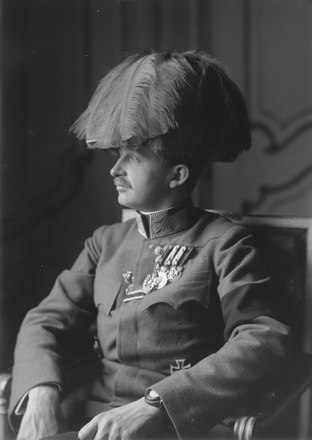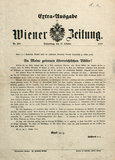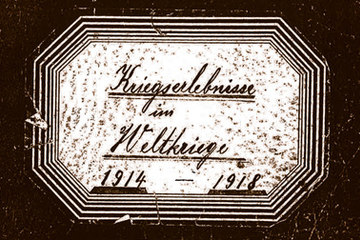On 16 October 1918, after it had become clear that the negotiations conducted by the imperial government with the deputies of the Reichsrat and the representatives of the nationalities would be unsuccessful, Emperor Karl published an appeal with an invitation to his peoples to take part in a complete restructuring of the Austrian Monarchy.
‘To My faithful Austrian peoples!
Since I ascended the throne, I have constantly endeavoured to achieve for all my peoples the peace they long for and to show to the peoples of Austria the paths along which they may, unhindered by obstacles and conflict, bring their powerful national identities to richly beneficial fruition. The terrible struggle of the world war has hitherto impeded the work of peace. (...) In accordance with the will of its peoples, Austria is to become a federal state in which each nationality shall form its own polity on the territory on which it lives. (...) This reshaping, which shall in no way affect the integrity of the lands of the holy Hungarian crown, is intended to give each individual national state its independence.’
This initiative, which came to be known as Karl’s ‘Manifesto to the Peoples’, emphasized the Emperor’s intention to transform the Austrian half of the Monarchy into a federal state with far-reaching autonomy for the national groups. His offer, however, came far too late. In addition, he categorically excluded the Hungarian half of the Monarchy, where the problem of the nationalities had been made particularly serious by the Hungarian government’s relentless policy of Magyarization.
The representatives of the nationalities saw the belated offer of federalization not as an invitation to take part in a reform programme but as a chance to determine their own future independently, with the option of leaving the Monarchy becoming an ever more realistic possibility. With his Manifesto Karl thus unwittingly accelerated the disintegration of the Monarchy as a political entity.
Translation: Peter John Nicholson
Bihl, Wolfdieter: Der Erste Weltkrieg 1914–1918. Chronik – Daten – Fakten, Wien/Köln/Weimar 2010
Gottsmann, Andreas (Hrsg.): Karl I. (IV.), der Erste Weltkrieg und das Ende der Donaumonarchie, Wien 2007
Leidinger, Hannes/Moritz, Verena/Schippler, Bernd: Schwarzbuch der Habsburger. Die unrühmliche Geschichte eines Herrscherhauses (2. Auflage, ungekürzte Taschenbuchausgabe), Innsbruck [u.a.] 2010
Quotation:
'To my fatihful Austrian peoples ...', Kaiser Karl I., quoted from: Bihl, Wolfdieter: Der Erste Weltkrieg 1914–1918. Chronik – Daten – Fakten, Wien/Köln/Weimar 2010, 230 (translation)
-
Chapters
- The course of the war 1917–1918: Face-to-face with imminent downfall
- The situation in the hinterland
- Apathy and resistance – The mood of the people
- The Sixtus Affair: A major diplomatic débacle
- A programme for world peace – President Wilson’s Fourteen Points
- ‘To My faithful Austrian peoples’ – Emperor Karl’s manifesto
- The collapse
- The disintegration of the Habsburg Monarchy – Part I: On the road to self-determination
- The disintegration of the Habsburg Monarchy – Part II: The situation in Vienna and Budapest
- The last days of the Monarchy









